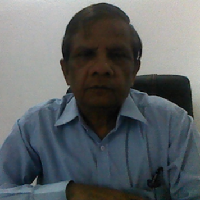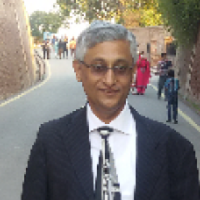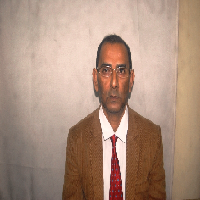
The term “Science” as per this author refers to reliable, consistent way of thinking, idea which may or may not be usually dependent on subjective assessment and whose conclusions are independently variable (if allowed to verify) or falsifiable, thus making the discovered knowledge self-correcting. The term” Science” to author usually refers to this method by a single individual or group of persons or by an organized institute or a body of information that has been derived from a hypothesis, an idea or using some logical approaches to thinking and investigation, generation of data, result ,interpretation and adding something new to existing knowledge. Scientists are therefore considered as torch bearer for the quest of truth in this universe. The term Ethics and truthfulness may be thus used interchangeably in the context of research, publication of an paper or an article or a thesis. In Medical research thus departure from truth may directly or indirectly entail serious consequences and damage to ethics and authors.
Ethics in Medical research encompasses concept and principals of right conduct of morality has been defined as not committing any deed that definitively and deliberately will do harm or any kind of injury to other persons who ever he/or she may be. Different principals of ethics in an indexed journal for a publication should be there like
- Care for honesty in reporting methodology in the arena of IPR
- Procedure data result
- Objectivity of doing research
- Discussion & conclusion
- In peer review process
- Writing of any grant taken for the research
- Disclosing personal and financial interest
- Disclosing conflict of interest with others
- Integrity of research
- Carefulness and respect to intellectual property Right (IPR)
- Never violating copyright and plagiarizing, confidentiality and responsible publication & scholarship not to advance for just academic career
- Avoiding wasteful and duplicate publications
- Taking informed consent of patients in works and clearance of intuitional ethical and animal ethics committee[5]
Scientific Dishonesty?
Not Sticking to ethical principles, mentioned as above while doing a research or while publication in an indexed journal constitute scientific dishonesty. Scientific dishonesty may be classified into fabrication, falsification and plagiarism and violating copyright and patent Right laws (Copying of ones idea, data methodology, words, sentences without ones written permission & attribution and publishing them & bringing them in public domain or applying them in the field or in real world or use for commercial issue of the acquired knowledge from the work without written consent of person or persons or organized body. Plagiarism is however different as it does not though distort scientific knowledge though it has tremendous negative consequences for the researchers and career of people involved and thus for whole scientific enterprise[6]
Meta-analysis of research on authorship found that pooled weighted average of ethical problems in authorship was29%(95% C.I 24% to 35%)[5] which was greater than 10 fold compared to 1.97% Prevalence of research misconducts( like fabrication, falsification or data modifications)[6]. Authorship misuse is more seen in province of West Bengal of India, India, France, South Africa Bangladesh (55%,95%> CI45% to 68% ) when compared to USA & UK or in international journal setting(23%,95%{CI18% to 28%})[7]
Even for myself in previous years in two of my thesis works ghost authorship was awarded to the persons as shown in under marked authors and the thesis content was published in journals without even knowledge of myself when I was guide or co-guide of these works and published as
- I in JIMA- one such thesis article published in authorship Chakrabarti S, Bera M, Bhattacharya PK, , Chakrabarty D, Manna AK, Pathak S, Maiti K.“Study of salivary gland lesions with fine needle aspiration cytology and histopathology along with immunohistochemistry”. J Indian Med Assoc. 2010 Dec;108(12):833-6 authors where following authors like Chakraborty S, Manna A.K Pathak S and Mati K are ghost authors were not ever associated with works.
- In journals Annals of Tropical Medicine & Public Health of Africa Health Research Organization in one original article published in 2011 with authors Bidut Kr Das, BK Gayen, Subrhra Aditya; Sumit Kumar Chakraborty; PK Dutta; Ajay Joseph “ seroprevalence of Hepatitis B Hepatitis C and human Immunodeficiency virus among healthy voluntary blood donors first time in Kolkata” Annals of Tropical Medicine and Public Health 2011; 4; Issue 2, Page 86-90 [Doi 10.4103/1755-673.855758] where authors like 1rst and corresponding author BK Das and others like S.Aditya, S.K Chakraborty, A Joseph were ghost authors and were never associated with the very thesis works and myself under whom the work was done was omitted as authors and the article was sent for publication without my knowledge even] as soon as I found the thesis published as article without my name as one of authors and with four ghost/ fraud authors for their academic advancement in carrier for promotion in rank of Professor or Associate Professor, I complained officially to the editor in chief of ATMH about such plagiarism, copy right infringement and Fraud authorship/ ghost authorship from my Email address of dated 21.10.2011 & 1.03.2012 and the Editor in chief of ATMH journal by his letter 12.03.20129 after going through all sent papers and also after contacting 2nd author of the article B.K Gayen for his opinion [based whose MD thesis under guide Prof P.K.Dutta and co-guide Prof. P.K Bhattacharya the paper was written & published was infringed copy right and plagiarised] agreed on these issues that Dr B. Das and others had no ethical right for authorship or corresponding authorship on this paper and others were mentioned by him as ghost authors on that article. The Editor in chief wrote ” Though the paper was duly undertaken by Dr. Gayen under guidance of Drs P.K. Dutta and P.K Bhattacharya, we find yours assertion wrong so the authors are based on fraud authorship and the paper is of great value to scientific community that’s why we accepted it and yours authorship should be excluded ” and by his letter of 16.03.2014 to Dr BK Das. I complained the same to the Director of Medical Education Services, Dept of H&FW, Govt. of West Bengal duly forwarded by the then Director of School of Tropical Medicine Kolkata , Ethic committee of IPGME&R under memo no STM/2490 dt 4.11.2011 Received on 12.11.2011 and to VC/Pro-VC and Controller of Examination(COE) of WBUHS under same memo no and WBUHS Docket No R/239 dated 2.07.2012 was put to COE on the same date. Till date I have not received any result or any correction/errata published from the journal end and the paper had some citation also in name of ghost/ fraud authors.
Why this is?
In West Bengal province and also probably in rest of India in medical research worlds the researchers (here MD PGTs) and guides including many junior or senior teachers of West Bengal Medical education Services (WBMES) are not aware of copy right laws, patent right acts /laws/sub-laws/ clauses under Intellectual Property Right acts and (1996 acts applicable in India since 2006) and what may be severe consequences of infringement of copy right or disseminating one’s research knowledge, data, result, etc in public domains or in real world without his or her written consent both in criminal or civil suit and how much cost may be “ damage suit file”- may be in terms of few hundred cores INR. In fact awareness is needed about what are copy right laws, Patent right acts, ghost authorship, fraud ness, plagiarism and what punishment in terms of civil or criminal IPC may happen and in west Bengal medical education services these kinds of infringement or ghost authorships is becoming almost rules rather than exception in various disciplines including in pathology even by senior teachers for achieving higher academic promotion from basic teacher to professor academic rank, because in west Bengal in academic promotion from basic teacher to professor rank, because in WBMES in academic promotion a amount of marks (almost 1/3rd are reserved for publications in either a National level academic journal or in Journals indexed in Index Medicas NLM Bethesda or in eligibility criteria for applying in the interview system according to guide lines of Medical council of India for teachers[8]. Other Probable reasons which encourages such kind of academic criminal acts and academic dishonesty of violating copy right, infringement, plagiarism due to advancement in academic career, existence of a system in health care institutions that lacks good research atmosphere, infrastructure, gazettes, funds and in fact inability to contribute by a person to do a reliable thinking or scientific ways of thinking or designing a research project and protocol, fund problems and desire to consider oneself superior to others by publishing an article & lack of intentions to spend enough time for research rather thinks beneficial of doing private practise to earn a lot, or lack of capacity to write a quality article, contributing new to existing knowledge in medical science.
What can be done to decrease such academic dishonesty?
Almost all the institutes today have their ethics committee. ICMR also published ethical guidelines for biomedical research on human participants. Strong ethics committee and ICMR guidelines research monitoring committee’s recommendations implementation can no doubt reduce may academic dishonesty but not ghost authorship and this author thinks that there must be also state level in Health and Family Welfare department and state Health University (as for in West Bengal WBUHS) level committee and subcommittee should be framed for investigating complaints related to academic dishonesty in terms of plagiarism, copyright infringement, patent right infringement and efforts should be directed in identifying those scientific dishonest people and huge penalizing them in terms of any academic advancement in their career or promotion. The aim should be to award ethical researchers and publications for encouraging desirable behavior also.
References-
- Naskar.S, Kundu S.K, Bhattacharya N.K ,Bhattacharya PK , Kundu A “ A study to correlate histopathology biochemical marker and Immunohistochemical Expression of Sex Steroid receptors in Prostatic Growth” Indian J.Med pediatric Oncol 2014: 35:40-3
- Authorship and contributorship guideline BMJ (ICMJE Recommendations 2013) www.bmj.com/about-bmj/resources-authors/article-submission/authorship-contributorship assessed on 2.03.2015 at 11-17pm
- Bera M, Bhattacharya PK, Chakrabarty D, Manna AK, Pathak S, Maiti K. “Study of salivary gland lesions with fine needle aspiration cytology and histopathology along with immunohistochemistry”. J Indian Med Assoc. 2010 Dec;108(12):833-6 {where Chakraborty S, manna AK Pathak S and mati K are ghost authors]
- B K Das, BK Gayen, Subrhra Aditya, Sumit Kumar Chakraborty, PK Dutta, Ajay Joseph “ seroprevalence of Hepatitis B Hepatitis C and human Immunodeficiency virus among healthy voluntary blood donors first time in Kolkata” Annals of Tropical Medicine and Public Health Year 2011;Volume 4 ; Issue 2, Page 86-90 Doi 10.4103/1755-673.855758, Atmph.org/article.asp?issn=1755-6783;year2011;volume=4;issue=2;spage86=90;aulast=Das;type-o [ here BK Das S.Aditya, S.K Chakraborty, A Joseph are ghost authors]
- Singh S “ Ethics in Research” Indian J of Dermatol, Venerol Leprol 2012; 78; 411-3
- Fanelli D How many Scientists Fabricate and falsify Research? A systemic review and Metaanalysis of survey data PLoS One 2009;4:e5738
- Marusic A, Bosnjak L, Jeroncic A. A systemic review of research on the meaning ethics and practices of authorship across scholarly disciplines PLoS One 2011; 6:e23477
- Medical Council of India Criteria for teachers amended rules 2009
This article is convincing no such stupid step be taken by unauthorised person,for personal gain it is a shameful activity, I expect all ethical approach be taken by any individual.
Ethics: very important though ; can come within ourselves Swachh Bharat needs to be changed into Swacch Bharti
We all need drastic change in our moral values; All of us
We all need drastic change in our moral values; All of us
A recent applicant of our Fellowship at the Child Development Centre, Apollo Gleneagles Hospital, Kolkata has recently returned from a one year fellowship from Durham University, UK. When asked in the interview what was the difference between her experience in India compared to the UK, she answered "plagiarism in research".
Research leads us to new findings. New findings propels progress. If the foundation of truth finding is based on falsification, it is not a surprise that Indians had no fundamental research contribution in the world in the last 60 years.
There are separate departments of Medical Ethics in the advanced world for a reason. These are not decorative posts like that of India, if there is any.
It is something that we need like oxygen and we need the right people to deliver it (not by the pets of the Big Bosses)!
Our international standing in medical research is worse than our neighbours for a reason too!
Research leads us to new findings. New findings propels progress. If the foundation of truth finding is based on falsification, it is not a surprise that Indians had no fundamental research contribution in the world in the last 60 years.
There are separate departments of Medical Ethics in the advanced world for a reason. These are not decorative posts like that of India, if there is any.
It is something that we need like oxygen and we need the right people to deliver it (not by the pets of the Big Bosses)!
Our international standing in medical research is worse than our neighbours for a reason too!
In the province of West Bengal, India The MD/MS/DM?Mch Thesis are submitted to WBUHS usually under Copy Right rules of Intellectual Property Right(IPR) of Guides, Co Guides and PGTs/PDTs concerned chronologically and as such publication of content of these thesis data, results, photographs without consent of guide, co guides and including in publications some ghost authors is strong violation of ethics of research and publications, violation of Copy Right and infringement of copy right, Plagiarism both from ends of Ghost authors Corresponding author and journal editorial boards members. The Journal editorial board should always and must ask and check the instuitional/ state ethics committee signed statement to justify authorships in addition to International Guide line of authorship[ see reference no 2 of this article ] and Plagiarism check before publication of a research work to avoid copy right infringement in the arena of IPR and when publication of a work before patent applications gazetted is a strong discredit for patent approvals as per Indian and International patent laws and even no patent is granted if material methods, data, results comes some how under public domain or when presented in any academic conferences in abstract form or in any tangible medias. This author professor Dr Pranab Kumar Bhattacharya faced three(03) of his guided MD thesis those contents data results and part of discussions were published even without his knowledge or even verabal consents to publish as a guide or co -guide in the indexed in Index medicas journals with ghost authors names like in journal JIMA[ Refrence to this article-3] and Annals of Tropical Medicine and Public Health of AHRO and another article published in Indian journal of Medical and Paediatric Oncology { 1, 4] and no rectification done yet in authorship and no penalty about those ghost authors in spite this author informed the respective journal Editors including WestBengal University Heath Sciences authorities and state health department officially about Plagiarism for one such .
Ethics is an empty vessel without its content i.e. human content!



Sep 07 2015